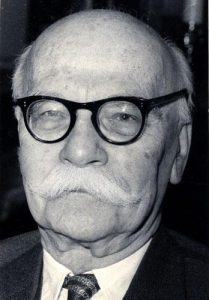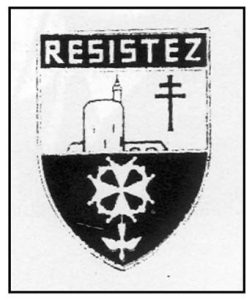Joining the civil resistance
Their traditional pacifist attitude opposing them to any form of violence, as well as a trend in favour of conscientious objection between the two wars, may account for the rather limited military resistance as such. There was no real « Protestant underground resistance » except for small areas in the Cévennes and Tarn regions, in which the camisards–maquisards had a true historical meaning.
The resistance to the Vichy regime was mostly civil and spiritual. Thus the « networks » were numerous, notably with René Courtin co-founder of the Liberty network in 1940, Bertie Albrecht and Henri Frenay of the newspaper Combat, Jean Cavaillès and André Philip of Liberation-South ; the latter had refused to vote full powers to Pétain and joined de Gaulle in July 1942.
The Comité Général d'Etudes - GCE (General Studies Committee)
This is was why the various study groups which led to the creation of the « General Studies Committee » in February 1943 included many Protestants, from the university or civil services and they reflected on the judicial, political and economic problems which would appear at Liberation. René Courtin’s role should be noted : he was anti-Munich, an active member of the « Fédé », an economics teacher in Montpellier and he gathered together a number of intellectuals and created the “Liberty” resistance movement.
The General Studies Committee, which produced the provisional institution of the Liberation Committees, was strongly backed by André Philip, the Minister of the Interior in London. Since his visit to President Roosevelt in the United States, he knew the Americans had created a plan for American military management of the liberated French territories. To counter this threat to French sovereignty, which partly explained Roosevelt’s hostility towards him, efficient institutions had to be created to avoid an administrative vacuum once the German forces left.
From the General Studies Committee to the provisional government
Several months before the landing, a general delegation of the provisional government in France was appointed (with the GCE) to make lists of people who would hold key positions in the future government. The general delegate was a Protestant, Emile Laffon. As Jean Cabanel said “With André Philip, René Courtin, Emile Laffon, Francis Leenhardt in charge of setting up liberation committees in the Southern zone, the Protestants indeed played a role in the preparation phase of the Liberation.” The Protestant François Coulet, a former aide-de-camp of General de Gaulle, and Commissioner of the Republic for Normandy, was near de Gaulle when he entered the sous-préfecture of Bayeux ; the Lutheran, Paul Haag was appointed in Marseilles, and other individuals more or less closely linked to Protestantism held important positions – for instance Jacques Soustelle director of the special services of the temporary government became the Minister of Information in May 1945. Many pastors were part of Liberation Committees.
Reactions to the Purge
The Protestants, of whom many were early participants in the Resistance, in helping the Jews, and close to de Gaulle, took part in the purge. But from the autumn of 1944, Marc Boegner opposed its excesses, and in the paper Réforme pastor Finet denounced the living conditions of German prisoners in French camps.
Many pastors and former resistants pleaded in favour of a less summary justice, especially against hasty and often public executions. In Montauban, pastor Jordan joined bishop Monsignor Pierre Marie Théas, a great resistant, who declared « The men of the Gestapo have left ; the morals of the Gestapo remain in some social classes ».






